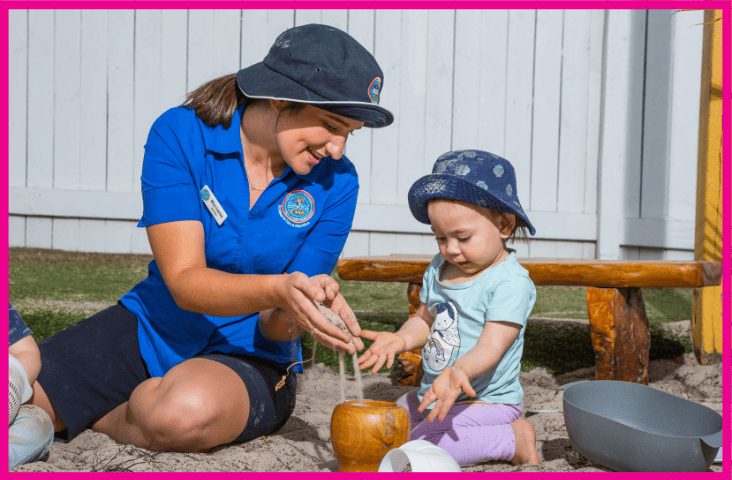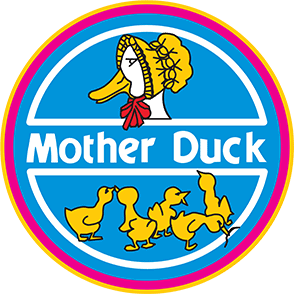
The Importance Of Learning Through Play
Have you ever wondered why we run a ‘play-based program’? I’ll let you in on a secret, play is an integral part of a child’s early development. The importance of play in early childhood should not be underestimated as it essential to children’s growth. As our professional understanding evolves, we are learning more and more about how we as educators can support children’s learning better.
Over the past 14 years, I have learnt about the importance of play in an early childhood service. Watching as our practices have developed from set group times where children were told to sit on a mat and listen as the educator read a story, counted to 10 or 20 and did the colours of the rainbow all while the majority of the children fidgeted around on the mat, to now where all of this learning is done through play. The educators observe and engage with the children as they play, incorporating and embedding numeracy and literacy in everyday experiences.
As young children engage in play, they are building and strengthening the connections in their brains that will shape their cognitive, social and emotional development.

Research has shown that play has a significant impact on a child’s developing brain and there are many benefits to playing in early childhood settings. Engaging in playful interactions with adults helps to develop sturdy brain architecture which builds the foundations for lifelong health and are the building blocks of resilience.
Playing games and engaging in authentic experiences allows children of all different ages to practice and strengthen essential executive function skills that will support them throughout their lives, including building the skills needed to focus their attention, develop basic self-control and support and strengthening their working memory.
As the years go by, I have noticed that children in our service are able to focus their attention for longer periods of time now compared to the standards in the past. My 10-year-old attended Mother Duck and finished up in 2018. Now my 4-year-old is at the service, and I can see the difference in their independence, social and emotional skills, and ability to resolve conflict and problem-solve at the same age.
In 2018, we offered a play-based program but what that looked like in practice was different, we observed children’s interests and planned activities based off this (which we still do now but in a different way). For example, Miss 3 showed interest in a bug in the playground one morning, without continuing to observe if this was an ongoing interest, we immediately went about to find anything we could about bugs. We then set up an area dedicated to bugs, we researched bugs on the internet and we planned out the next 2 weeks. The difference in the way we would approach this now demonstrates our deep listening and strong relationships with the children.

For example, Miss 3 arrived one day and said that on the weekend she watched a butterfly emerge from a cocoon, we would discuss this with her and leave it at that. Two days later Miss 3 comes in and says that she saved a snail from being squashed (she moved it off the pathway). This demonstrates to us that she shows an interest in insects but still, we don’t frantically find everything we can about bugs just yet.
Over the next two weeks, Miss 3 continues to tell us about different bugs and insects she has seen or rescued, this is when we can now see a pattern in Miss 3 interests and begin our research journey together with the children.
Our educators are taught to slow down with the children and engage in experiences on a daily basis, they also foster children’s interests through project work which involves research that the children and educators do together. During this project work the children are learning to collaborate, resolve conflict and become lifelong learners.
Some of the following games, although simple, can provide immense benefit to your child’s developing brain – and you and your child can have some fun while you play together:
- Peek-a-boo – babies love hide-and-seek games, it challenges them to remember who is hiding and helps them to practice basic self-control skills.
- Making chores fun – toddlers love to help! Simple activities like sweeping the floor, putting away toys and books or putting their clothes away are tasks that can be a form of role play that helps to develop self-help skills.
- Active songs – children love physical games but they need reminders about how to play, songs with movements provide. Important physical activity and the lyrics reinforce when and how to move along e.g. “I’m a little teapot”, “Head’s, shoulders, knees and toes”.
- Simon says – this activity tests a child’s attention to focus on what you have said e.g “Simon says touch your toes, touch your head”

There is a lot more information on the benefits of play for young children. If you are interested in more information, Raising Children Network has lots of information and ideas here or The Centre for the Developing Child at Harvard University has developed a range of resources with different activities and games for children ranging from Infants to Teenagers here.


